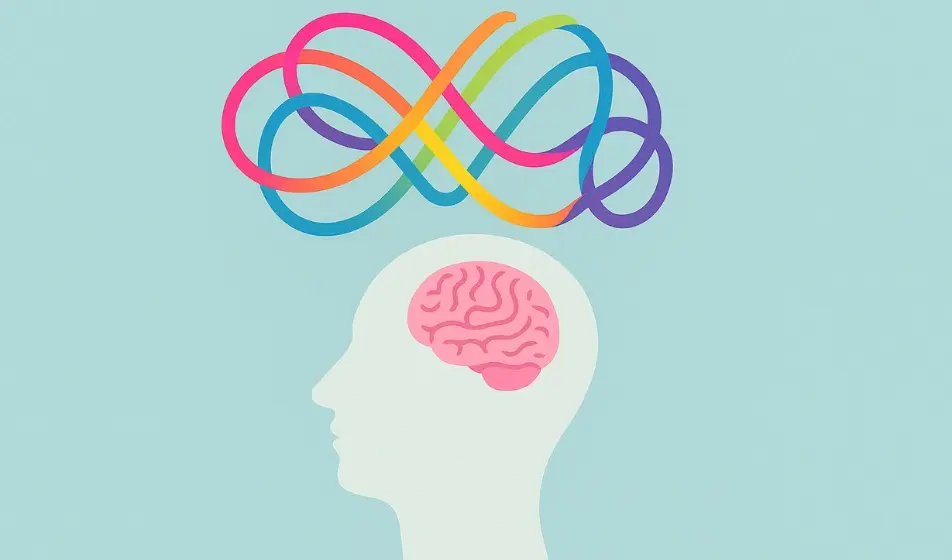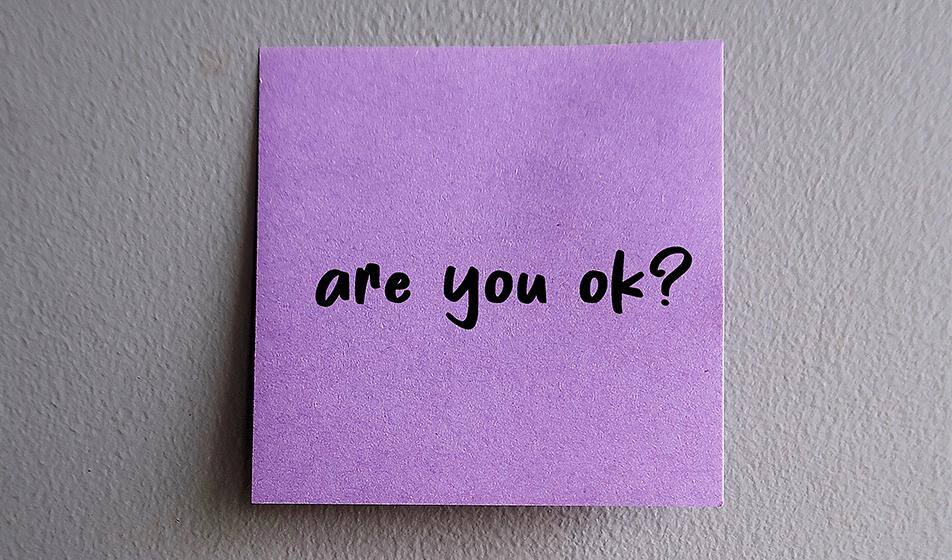We recently hosted a webinar which focused on mental health and wellbeing in the workplace. During the webinar we explored the steps business leaders and managers can take to support the mental health and wellbeing of people and help them find professional help and expert guidance as the pandemic continues into 2021.
The webinar was co-hosted by Sarah Murphy, Associate Director of Advice, Information and Training of Rethink Mental Illness, one of the largest charitable providers of services for people living with mental illness.
The current scale of the mental health crisis
Supporting remote and home workers
The link between mental and physical wellbeing
The importance of mental health professionals
The current scale of the mental health crisis
Early into the pandemic, the Office for National Statistics reported that one in five Britons reported symptoms of depression, compared with one in ten before the crisis.
A different study by The Health Foundation placed the figure closer to 70 per cent, with stress, anxiety, insomnia and boredom all contributing to mental health issues as the pandemic continues.
With work forming such an important part of people’s lives, it’s imperative that employers do every they can to provide support in a time like no other. However, it's important to remember that most employers are not mental health professionals and it’s not their place to diagnose employees with illness.
Instead, employers should focus on helping people make use of the many dedicated resources that are available to help them deal with depression, stress and anxiety.
Supporting remote and home workers
Before the pandemic, homeworking was regarded as a luxury for many people and not all employers were convinced is was right for their business. Eleven months into the pandemic and with a large proportion of the workforce working from home, the situation is very different.
Many people finding that they are ‘living at work’ as opposed to ‘working from home’ and finding it difficult to switch off. The lines between home and work have become blurred and this is contributing to stress and anxiety, which may well be affecting engagement and productivity.
That said, many people have adapted well to homeworking in the early days of the pandemic. For those who previously commuted long distances to and from work, there have been financial benefits as well as shorter days. On the other hand, these same people may now be feeling isolated and lonely. People who may have appreciated working from home early on the pandemic may now be missing the camaraderie and social element of the workplace. A person's mental health levels are not fixed and can rise and fall without them necessarily being mentally ill.
A need for cultural change
Breathe’s own culture – based on putting people first – has been central to our efforts to stay positive and keep working effectively but that we have had to make changes to the dynamics of how we have supported people.
In the physical workplace, it can be easier to recognise when someone is struggling and offer help. When they are working from home – despite the widespread use of communications technologies like Zoom and Microsoft Teams, it can be far harder to detect when someone is suffering. People may also find it in themselves to put on a brave face for the duration of a Zoom call but be suffering in silence when they are offline and alone.
As a result many businesses have had to take a proactive approach to ensuring their people know who they can talk to and what resources are available. Despite progress in recent years, there is still stigma attached to mental illness and some organisations are more progressive than others.
The importance of developing a culture where people do feel supported and comfortable talking about their issues has therefore never been more important.
But where should an employer begin, especially at a time when so many businesses are struggling financially, and finding it difficult to maintain revenue streams?
Here are five resources which cover company culture and mental health support which you may find useful:
-
Our 2020 Culture Economy Report explores the relationship between progressive cultures which bring out the best in people, foster wellbeing and boost happiness and performance levels. The report looks at the steps businesses can take to improve company culture and draws on the experience of SME owners and managers.
-
Rethink Mental Illness provide a range of training courses for employers and employees to help them understand mental health and how to respond when problems arise. These resources are brilliant starting point and also ideal for employers with established support programmes which they want to extend.
-
Breathe’s Mental Health in the Workplace guide discusses the high cost to the economy which results from stress and mental illness and includes 10 practical steps for employers can take to support wellbeing.
-
Breathe and Engagement Multiplier recently hosted a webinar in which they explore ways to gage employee engagement and happiness levels as part of their plans to successfully rebound in 2021.
-
The Mental Health Foundation’s How to support mental health at work guide discusses the importance of addressing mental health at work in terms of people with existing issues and those individuals who are at risk. The guide also explains how toxic work environments and cultures are corrosive to mental health.
The link between mental and physical wellbeing
In one of our recent blog posts, our Head of People – Suzie Hunter – talked about Breathe’s own culture and the steps we have taken to protect our people and support their physical as well as mental wellbeing.
Of course, the link between mental and physical wellbeing is well documented but people who may previously have been regular gym users or active in other ways have faced a challenging time throughout the pandemic.
Our own programme of events and activities has included yoga and pilates in addition to step challenges. Keeping people moving (in line with lockdown restrictions) has been important and key to ensuring people stay positive.
People don’t need to embark on triathlon training or weightlifting to stay physically and mentally fit. For many, a daily walk or even some gardening can be highly effective.
The importance of mental health professionals
During the webinar, we also addressed the importance of engaging with mental health professionals and making sure employees have access to resources.
Employee Assistance Programs (EAPs) are a straightforward way of guiding people to the help they need and although they do require investment, the value they bring in terms of helping people manage mental health issues and recover is far greater than their cost.
For those recovering from mental and physical health problems, occupational health, is another highly valuable option which is often part of EAPs. Although sometimes associated more with physical health problems, Occupational health is every bit as applicable to mental illness and helping people find professional and specialist help.
Support for mental health first aiders
More businesses are appointing and training mental health first-aiders – team members who are trained to provide ‘first line’ support for colleagues who are struggling. However, it’s very important that those providing help are themselves well supported.
Some mental health first-aiders may be hearing upsetting and even harrowing accounts of their colleagues’ problems with which they may struggle to process. Ensuring mental health first aiders have access to professional resources when need is essential, however, this is something overlooked by otherwise well-meaning employers who genuinely have the best interests of their employees in mind.
Support for business leaders
It's also important to acknowledge that many business leaders are facing incredible challenges and that the burden of navigating their organisations through difficult waters and supporting their team members may well be having a huge impact on their mental health. There is an old saying: 'who watches the watchman?' Who indeed?
Business leaders must take the time to look after their own mental health and seek assistance required. This means remembering to take time off to rest as well as accessing the same mental health support resources that you would recommend to employees.
Jonathan talked about his membership of Vistage, a membership organisation for MDs and CEOs and how important it has been to talk with his peers throughout lockdown. The organisation encourages members to be open and honest about the challenges they are facing and provide each other with support.
Webinar poll results
During the webinar, we conducted a poll and one of the key findings was that of the 429 SME owners and managers who responded, 279 reported that they have introduced additional mental health support measures since the beginning of the pandemic. 109 respondents said their organisations have not introduced new support measures with a further 41 unsure if changes have been made.
Although it’s positive to see that 65 per cent of employers responded positively to our questions in general, it’s worrying that nearly 35 per cent were not able to do so.
291 poll respondents said they have seen an increase in people reporting mental health issues since the beginning of the pandemic.
Encouragingly, 341 people agreed with the statement that people within their organisation are encouraged to talk openly about their mental health.
Final thoughts…
Although our poll results paint a mostly positive picture of our webinar delegate’s attitudes towards supporting people, we are still a long way from a return to normalcy and this calls for ongoing efforts to provide help.
The COVID-19 vaccine provides us with hope but in terms of the longer-term legacy of the pandemic in terms of its impact of mental health remains to be seen. Many people are facing a long walk back from the challenges of 2020 and the assistance their employers provide will be central to helping them make this long and difficult journey.
If you would like to listen to a recording of the webinar, this is freely available via our YouTube channel where you will also find other videos and resources.
To make a donation to Rethink Mental Illness and support the incredibly valuable work they are doing, please follow this link.

Author: Aimée Brougham-Chandler
An IDM-certified Digital Copywriter (2023) & English Language & Literature graduate (BA Hons), Aimée is Breathe's Content Assistant. With 3 years' content marketing experience, Aimée has a passion for writing - and providing SME HR teams with solutions to their problems. She enjoys delving into & demystifying all things HR: from employee performance to health and wellbeing, leave to company culture & much more.




